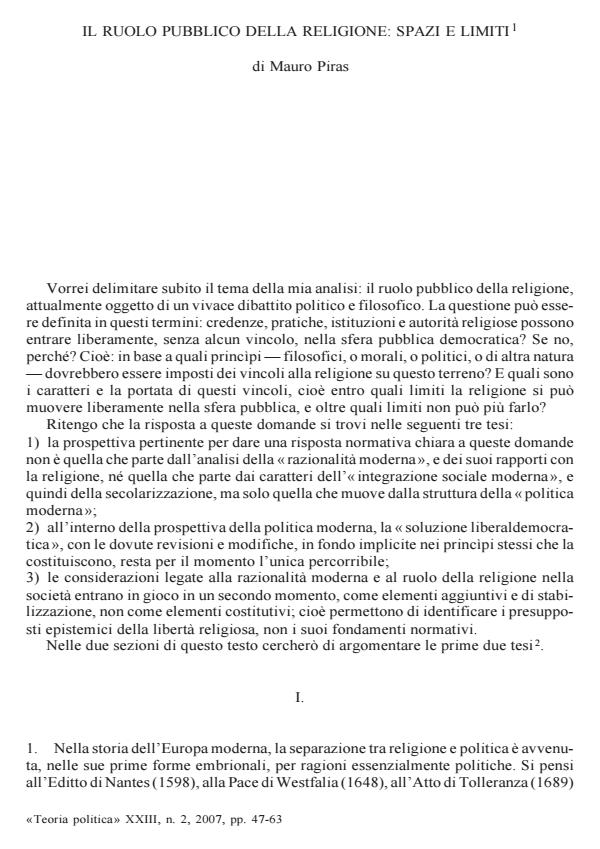Il ruolo pubblico della religione: spazi e limiti
Journal title TEORIA POLITICA
Author/s Mauro Piras
Publishing Year 2007 Issue 2007/2
Language Italian Pages 17 P. 47-63 File size 336 KB
DOI
DOI is like a bar code for intellectual property: to have more infomation
click here
Below, you can see the article first page
If you want to buy this article in PDF format, you can do it, following the instructions to buy download credits

FrancoAngeli is member of Publishers International Linking Association, Inc (PILA), a not-for-profit association which run the CrossRef service enabling links to and from online scholarly content.
How legitimate is the current demand that religion play an ever more prominent role in public life? Should religious institutions and beliefs enjoy free rein in the life of a democracy or should they be subject to certain limitations, and if so, which ones? The answers to these questions lie in the following three theses. First of all, a correct system of norms cannot be based on an analysis of modern rationality, on the relationship between modern rationality and religion or on an analysis of the process of secularization. It can only be based on an analysis of modern political structures. Secondly, it therefore holds that the « liberal-democratic solution », duly revised and modified, provides the only way forward. In particular the Rawlsian concept of «public reason» provides ample room for religion in public life while allowing for limitations to be devised and defined. Last, the concepts of modern rationality and secularization should be taken into consideration at a later stage, as epistemic premises of religious freedom and not as fundamental norms.
Mauro Piras, Il ruolo pubblico della religione: spazi e limiti in "TEORIA POLITICA" 2/2007, pp 47-63, DOI: